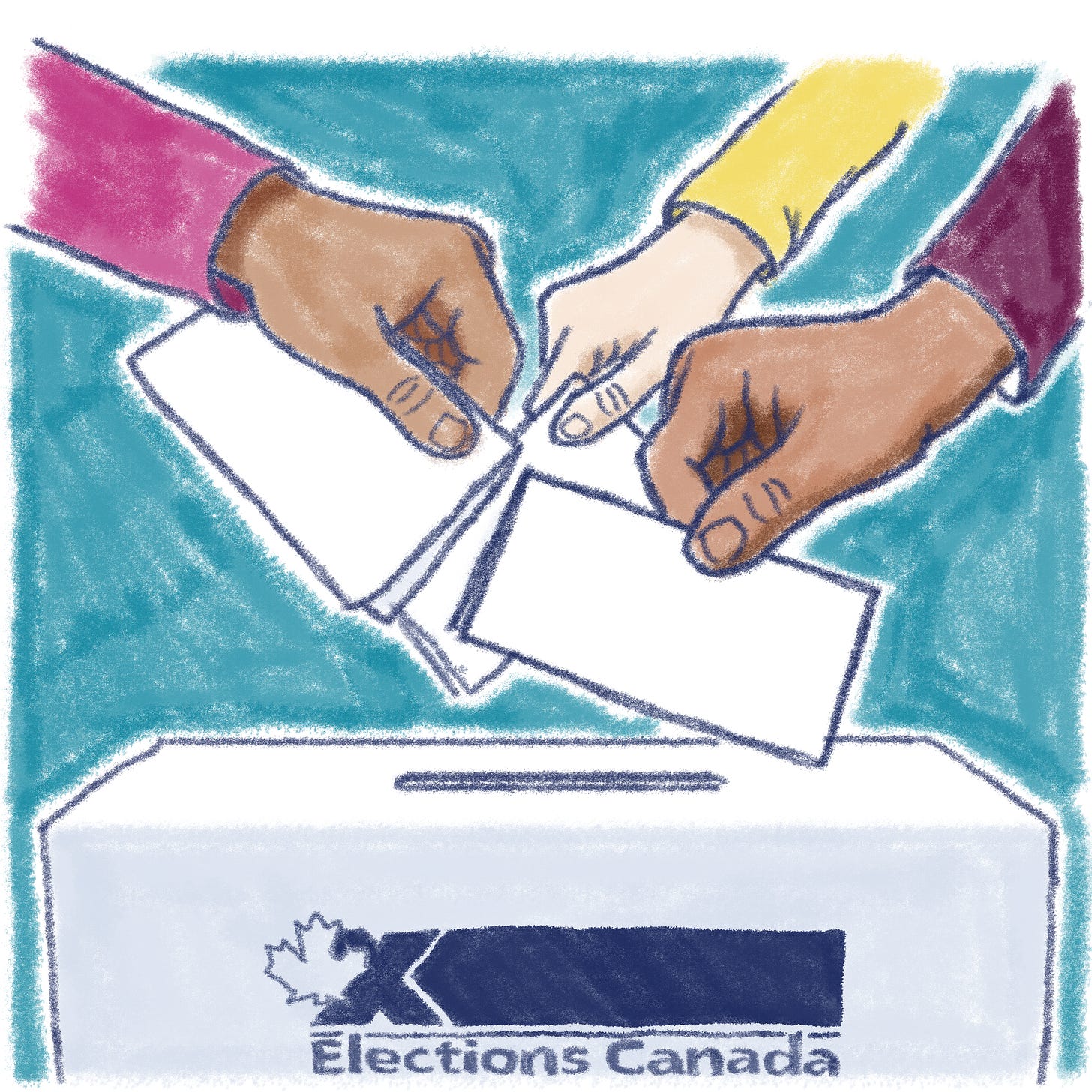Thinking long-term in the voting booth
How can we encourage conversations about elections to promote intergenerational solidarity?
Gen Squeeze supporter Tom Rankin recently shared with us a thought-provoking idea about promoting intergenerational solidarity in our electoral system. We loved Tom’s creative thinking about amplifying the voices of younger people, so we’re working together to bring his idea to all of you.
Here’s how Tom describes his “New Perspective on Voting” in a nutshell:
“SENIORS / ELDERS: Help the younger generations design their planet. It’s not ours anymore; we have way less time to live with the consequences of our vote. Ask how they’re voting and why, ensuring they’ve researched. Then vote with them. We taught them to eat, walk, play games. We should support them as they design their planet.
YOUTH / GEN X-Y-Z / MILLENNIALS: It’s your planet. Get help designing it. Talk to your elders. I’m a senior. The planet isn’t mine anymore; I have way less time to live with the consequences of my vote. Tell your elders how you’re voting and why; do your research. Then ask them to vote with you. Help us support you as you design your planet.”
Just as Jayla Rousseau-Thomas reminded us in her article on the rich tradition Indigenous Peoples have of using the Seven Generations Principle, we love the way Tom’s proposal makes room for longer-term thinking in our electoral system. Voting in solidarity with younger generations — who stand to inherit growing climate risks and costs, rising government debts, and prohibitively unaffordable housing — is a concrete way for today’s retirees to be good ancestors to those who follow them. And perhaps the prospect of having their political influence amplified could be the nudge more younger people need to make sure they show up on election days.
As we’ve discussed previously, we didn’t end up with today’s affordability, housing, medical care, and climate crises by accident. Life is more expensive than ever, and we often find ourselves trying to individually hack broken systems, in search of a short-term patch. But lasting repair isn’t something that any one person can manage alone. We need to work together to fix the broken public policies at the heart of why hard work doesn’t pay off today the way it did for previous generations.
For Tom, the motivation for thinking longer-term about the impact of his vote is very immediate: his sons.
“I don’t recall exactly when or where the idea came. I’m guessing I was lost in thought on a drive, or maybe out on my canoe. Some situation that encourages quiet thought.
I have three adult sons. Both their Mom and I were raised in families that voted so we passed that along to them. I’m very concerned with many trends around the globe and, like every parent, I want my boys to be their best selves and I want to leave them a healthy planet.
I was probably musing about how I could make their vote have more impact, how I could help them influence their world. I can’t force them to get politically involved. So what if I voted with them?
There are three of them. How do I balance that? Two out of three would have to support the same Party; parental fairness is paramount!
That triggered the basic idea and it just evolved from there. Talk with them and get feedback. Talk with peers and get feedback. And here we are!”
With provincial elections expected in BC, Saskatchewan, and New Brunswick in 2024, and Nova Scotia, Newfoundland, and a federal election to follow in 2025, we’re thinking about how Gen Squeeze could help share Tom’s new perspective on voting far and wide to get people thinking and talking about the issues facing younger people, and what it means to vote in solidarity with them.
Tom’s experiences so far with sharing his voting proposal are an encouraging sign about what might be possible.
“As of January 2024, I’ve been talking about this idea for 4.5 years. For the last 3.5 years, I’ve handed out about 250 two-sided business cards with the above short description of this New Perspective on Voting. I made them because a conversation is one thing, but if people are going to remember and think and process and have their own conversations, they need something to bring them back to the triggering conversation.
In all that time, and all those people, not a single person has said it’s a bad idea, that they don’t think it’s workable. Every younger person has reacted favorably, from simple agreement to outright passionate engagement.
So now it’s over to the younger crowd to run with it! 😊”
We’d love your input, so please jump in with your thoughts in the comments.



I am personally probably more frustrated with people my age for supporting policies (mostly about housing) that don't treat them fairly or that unnecessarily create inequality, so not sure I would advocate for everyone to outsource their judgement. Lots of young and merely young-ish people I know are great at not wanting to leave costs for future generations, but not so great in my opinion at realizing there is more than one way to achieve a goal. That said, absolutely agree with remembering that young people are more effected by the long-term impacts of policy, and that long-term thinking is easier when people are willing to share the costs fairly now.